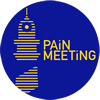- Those attending this global meeting have shared the need to agree on guidelines for good practices in the responsible management of opioids or analgesics in the treatment of pain.
- Representatives of the different scientific societies have shared the challenges and difficulties of this initiative.
Menorca, October 22, 2018.- The VII Multidisciplinary Master Class of Pain, organized by the Sine Dolore European Pain Foundation in Menorca, has included for the second consecutive year the celebration of the II Multidisciplinary Summit of Scientific Societies against Pain, a global event in that attendees have shared the need for different medical, health and scientific specialties to establish common guidelines in the use of opioids in a responsible manner to treat chronic pain.
To this end, representatives of the Spanish Society of Occupational Traumatology (SETLA), the Spanish Society of Rehabilitation and Physical Medicine (SERMEF), the Spanish Society of Primary Care Physicians (SEMERGEN), the Spanish Association of Nursing Anesthesia, Resuscitation and Pain Therapy (ASEEDAR-TD), the Spanish Society of Physiotherapy and Pain (SEFID), the Association of Specialists in Occupational Medicine (AEEMT), the Spanish Society of Anesthesia, Resuscitation and Therapeutics of Pain (SEDAR), the Balearic Society of Pain, Balearic Chapter of the Spanish Society of Pain (SBD), the Andalusian Society of Pain and Continued Assistance, Andalusian Chapter of the Spanish Pain Society (AADAC), Spanish Society of Craneo-mandibular Dissemination and Orofacial Pain (SEDCYDO), the Society Española de Oncologia Radioterapia (SEOR) and the Spanish Society of Palliative Care (SECPAL) have participated in a colloquium that ended with the signing of an ext enso global manifesto with a total of 27 conclusions whose first three are listed below:
- The scientific society currently recognizes the use of powerful opioids in non-oncological chronic pain, knowing that its use should be aimed at relieving pain, reincorporating the patient to social life, compatible work and free of risks and, as consequently, improve the quality of life of the patient.
- Opioid therapy should be initiated in the face of intense or refractory pain, or other therapeutic alternatives have been exhausted beforehand.
Therefore, opioids are considered second-line drugs for the treatment of chronic non-cancer pain. We must bear in mind that the individual response to treatment varies widely and we must accept that there is a failure rate that can sometimes condition the withdrawal of treatment.
Dr. Ignacio Velázquez sets out the main conclusions of the II Multidisciplinary Summit of Scientific Societies Against Pain held on October 20 in Menorca.
Multidisciplinary Pain Meeting VII MASTER CLASS
In this seventh edition they have highlighted topics as different as Cryotherapy, regenerative cellular medicine, antidepressants and physical exercise as a rehabilitating element, among others.
